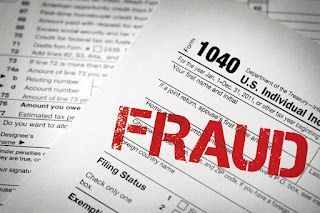Many have heard the radio commercials advertising "up to $26,000 PER EMPLOYEE" for businesses who weathered the pandemic and kept employees working during a really tough time.
To break it down, the Employee Retention Credit (ERC) is a real program. It is a refundable tax credit designed for businesses who continued paying employee while shutdown due to the Covid-19 pandemic or had significant declines in gross receipts from 3/2020 to 12/31/2021.
I won't bore you with the details because this article is not about how to qualify for the ERC, it is about how to protect yourself and your business from getting scammed by promoters of the ERC scam.
Many businesses continue to have a hard time financially after the pandemic and associated labor slow-down. This makes "fertile ground" for scammers to prey upon unsuspecting business with promises of "free money" from the government.
Many of the scammers are basing the ERC claim on improper taxpayer data and conditions to "fit" the ERC guidelines for those businesses that might otherwise not qualify for the credit.
The IRS is warning businesses to be cautious of advertised schemes and direct solicitations promising tax savings that seem to good to be true. Scammers that charge large up front fees or large contingent fees based on the amount of your ERC refund may be a sign of a scam. Improperly claiming the ERC could result in YOU being on the hook to repay the improper credit, along with interest and penalties. When these scammer companies disappear, you are left holding the bag!
REMEMER: ULTIMATELY IT IS THE TAXPAYER THAT IS RESPONSIBLE FOR THE INFORMATION THAT IS ON YOUR TAX RETURNS AND DOCUMENTS FILED WITH THE IRS. DON'T FALSELY TRUST A SCAMMER WITH YOUR GOOD NAME AND REPUTATION. ASK QUESTIONS IF YOU DON'T UNDERSTAND!
If you are being audited or have been audited and feel you need legal representation we can help!
Good luck and be suspicious!!!
650.933.5222
Disclaimer: The information provided is intended to provide a general overview about the topic presented. it is not intended to be a legal interpretation of your individual tax situation. If there is a conflict between the information provided here and any legal authority implementing or interpreting the subject matter, the legal authority shall prevail. Always seek legal advice from a licensed attorney. This article does not establish an attorney-client relationship. That relationship can only be accomplished with both parties signing an engagement agreement.

